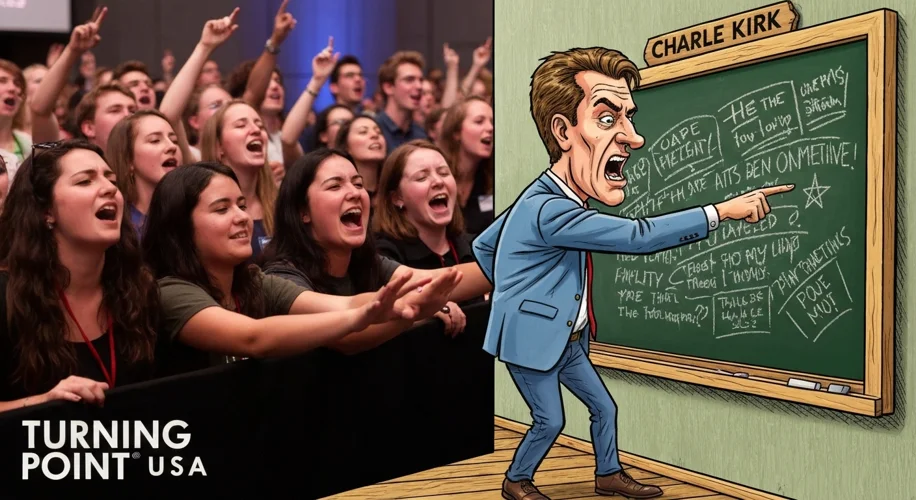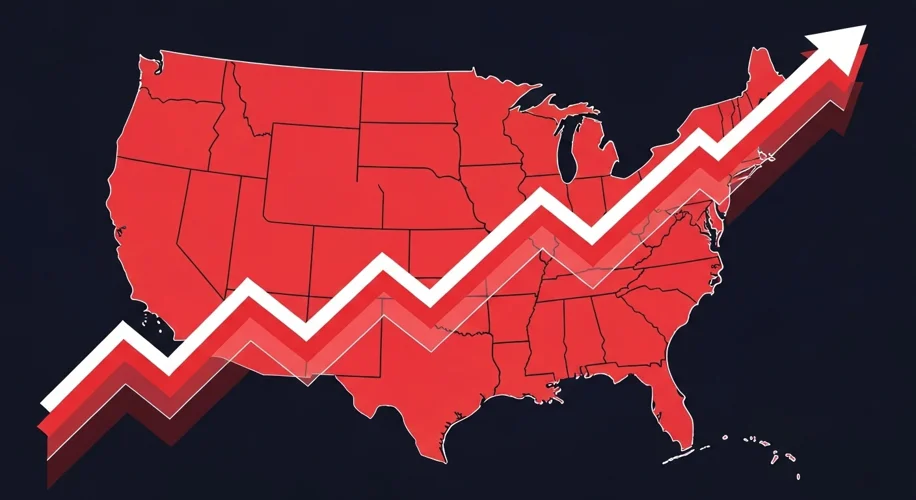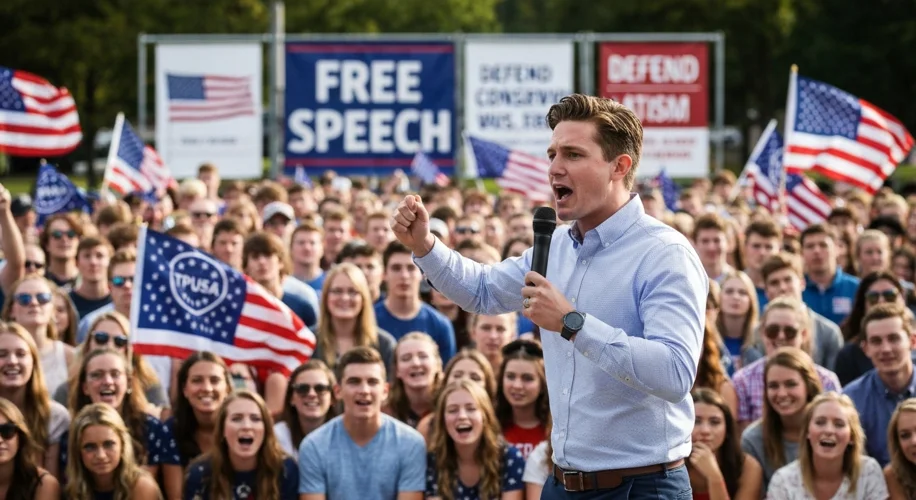In the swirling currents of modern American conservatism, few organizations have risen as rapidly or commanded as much attention as Turning Point USA. Founded in 2012 by Charlie Kirk, a dynamic and often controversial figure, the group has become a formidable force in shaping the political consciousness of a new generation of conservative activists. Its meteoric rise is a story of strategic vision, effective outreach, and a keen understanding of the evolving landscape of youth engagement in politics.
Charlie Kirk, the face and driving force behind Turning Point USA, was born in 1993. His formative years were shaped by a rapidly changing America, marked by increasing political polarization and a growing disillusionment with traditional institutions. Kirk himself has often spoken about his early exposure to conservative ideas, which he credits with providing him with a clear framework for understanding the world. This conviction, coupled with a natural charisma and a prodigious talent for public speaking, would become the bedrock of his future endeavors.

The early 2010s were a fertile ground for a movement like Turning Point USA. The aftermath of the 2008 financial crisis, coupled with the election of the nation’s first Black president, Barack Obama, had created a palpable sense of unease and a desire for a renewed conservative vision among many young Americans. Kirk recognized this demographic’s potential and the need for an organization that could effectively mobilize them. Unlike many established conservative organizations that focused on older demographics or traditional policy debates, Turning Point USA was conceived with a singular focus: high school and college students.
The organization’s strategy was, and remains, rooted in on-the-ground activism. Turning Point USA actively recruits student ambassadors to establish chapters on their campuses. These chapters then organize events, host speakers, and distribute literature, creating a decentralized network of conservative influence. The messaging is often direct, employing a blend of traditional conservative principles with a sharp critique of what they perceive as liberal indoctrination in educational institutions. Topics such as free markets, limited government, and individual liberty are presented not just as abstract ideals but as practical solutions to the challenges facing young people.
Key to Turning Point USA’s success has been its ability to tap into the burgeoning digital media landscape. Kirk and the organization have masterfully utilized social media platforms like Facebook, Twitter, Instagram, and YouTube to disseminate their message, engage with their audience, and recruit new members. Kirk’s own online presence, characterized by rapid-fire delivery and often provocative statements, has cultivated a devoted following. This digital-first approach allowed Turning Point USA to bypass traditional media gatekeepers and speak directly to millions of young Americans.
The impact of Turning Point USA on the conservative youth movement has been profound. It has provided a platform and a sense of community for young conservatives who may have felt alienated by the prevailing cultural narratives in universities and media. The organization has been instrumental in promoting a particular brand of conservative thought that is often characterized by its skepticism towards climate change science, its strong stance against “woke” ideology, and its enthusiastic embrace of figures like Donald Trump. Trump’s presidency, in particular, provided a significant boost to Turning Point USA, as the organization became a vocal advocate for his policies and a key mobilizer of young Trump supporters.
However, Turning Point USA has also faced its share of criticism. Detractors often point to the organization’s confrontational tactics, its alleged amplification of misinformation, and its role in exacerbating political polarization. Accusations of intolerance and a lack of intellectual rigor have been leveled against the group, particularly in relation to its campus activities, which have sometimes led to protests and counter-protests.

Despite the controversies, the organization’s influence is undeniable. Turning Point USA has become a crucial pipeline for future conservative leaders, activists, and policymakers. Its graduates have gone on to work in political campaigns, think tanks, media outlets, and government offices, carrying the organization’s ideology and network with them. The group’s success also highlights a broader trend in American politics: the increasing importance of youth engagement and the power of social media in shaping political movements.
Looking back, Turning Point USA’s ascent is a testament to Charlie Kirk’s vision and his ability to connect with a generation of young Americans seeking a voice in the national conversation. While its long-term impact and the ultimate trajectory of the conservative movement it champions remain to be seen, its place in the history of American political activism is already firmly established. It represents a significant chapter in the ongoing evolution of conservative thought and the enduring struggle for the hearts and minds of America’s youth.

In essence, Turning Point USA is more than just a political organization; it is a cultural phenomenon. It has fostered a sense of identity and purpose among its young adherents, equipping them with the tools and the rhetoric to engage in the political arena. The history of Turning Point USA is, therefore, inextricably linked to the broader narrative of how conservatism has adapted and mobilized in the 21st century, particularly in its quest to capture the allegiance of the next generation.

